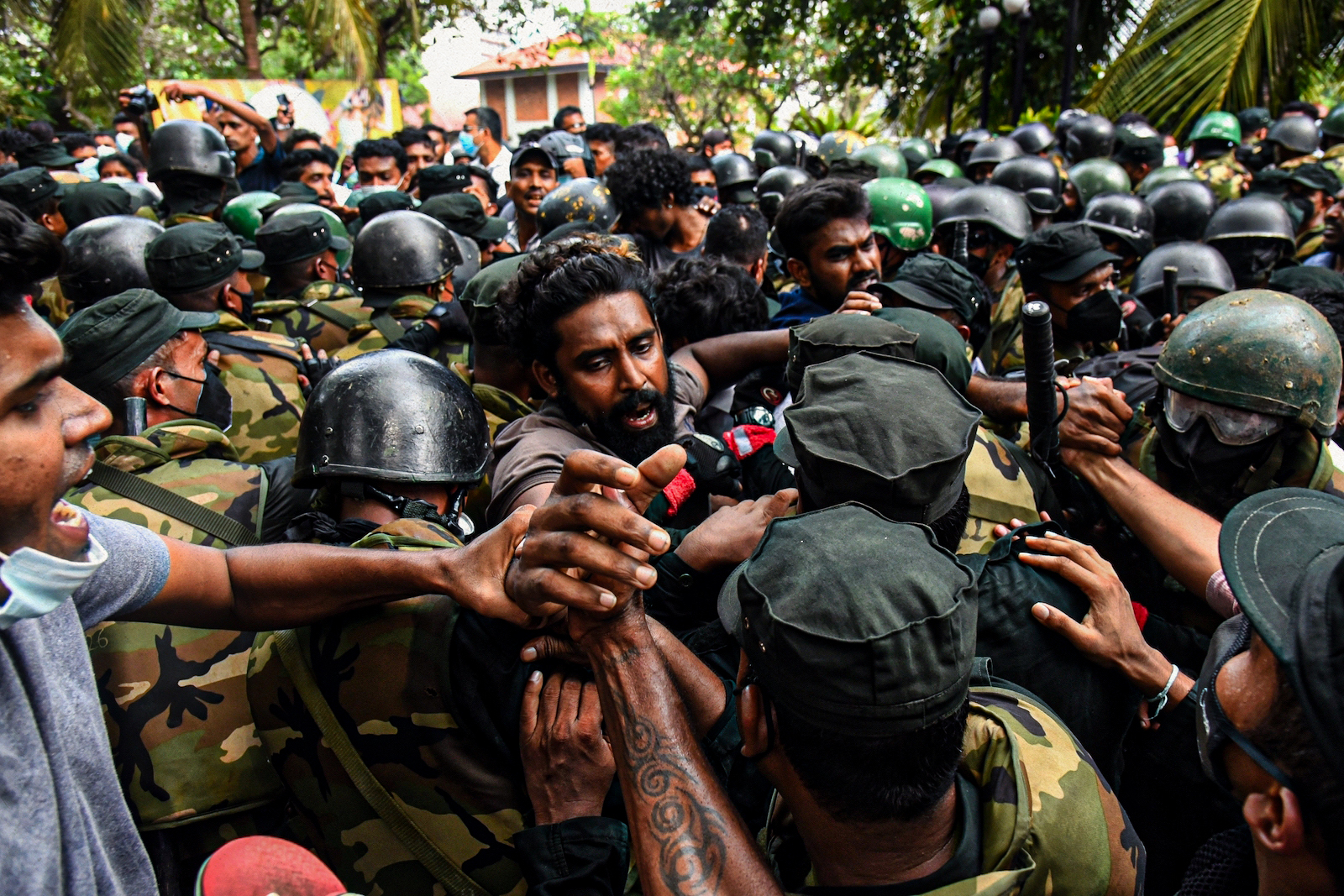
Can Ranil Wickremesinghe Right Sri Lanka?
2022 has been a tumultuous year for Sri Lanka due to an ongoing economic and political crisis. In May, Sri Lanka defaulted on sovereign debt payments amounting to $78 million. The only way out of the economic crisis is to obtain a bailout from the International Monetary Fund and set long-term economic recovery plans. However, to bring about economic stability, the country must be in safe hands with capable leaders and a legitimate government.
The ongoing political crisis, which commenced with protests against Gotabhaya Rajapaksa, the former president, and Mahinda Rajapaksa, the former prime minister, are far from over. The main question now is whether Ranil Wickremasinghe, the current president, will be able to bring both economic and political stability to the country.
Due to mounting pressures and the undying momentum of protests themed as #gotagohome, both Mahinda Rajapaksa and Gotabhaya Rajapaksa resigned from their respective offices. It was a pandemonium that resulted in protesters storming the Presidential Palace, and the Prime Minister’s office, and setting fire to the homes of politicians. Even the ancestral home of the Rajapaksas’ in Hambantota and the private residence of Ranil Wickremesinghe was set ablaze.
When Ranil Wickremesinghe assumed office, he took over a country ravaged by angry protesters mobilised to overthrow the government and make corrupt politicians accountable for various crimes. One of the running themes of the protests apart from demanding the resignation of Gotabhaya Rajapaksa was the demand to “return our stolen money back.”
Unfortunately, questions were raised about Wickremasinghe’s legitimacy to rid the country of corruption when he was implicated in an insider trading scam involving the country’s central bank in 2016 run by the son-in-law of Arjun Mahendran, the former central bank governor, who was appointed due to the personal recommendation of Ranil Wickremasinghe.
Among other criticisms was the portrayal of Wickremasinghe as a dangerous man under whose orders a torture camp was operated in Batalanda in 1988 to exterminate opposition political activists. Preconceptions about Ranil’s own complicities in corruption and dangers to upholding the rule of law were confirmed with military-led crackdowns on protesters and arrests made under the draconian Prevention of Terrorism Act of 1978.
The main expectation of the people with Wickremasinghe’s appointment was to seek a quick solution to the economic crisis by negotiating a deal with the IMF for a sovereign debt bailout and an economic recovery plan. This is because of his personal relationship with the West. Examples are his intervention in securing a ceasefire with the Tamil Tigers in 2002 and securing diplomatic support in 2018 during the constitutional coup.
Sri Lanka’s ambassador to China has announced that a $4 billion aid package is under discussion which includes $1.5 billion in a credit line and a currency swap. India has already provided assistance worth $4 billion. Nevertheless, more work has to be done with regard to stabilising the currency, and strengthening foreign reserves to boost investor confidence, while also taking drastic steps to privatise loss-making state-owned enterprises which have been a burden on the economy.
Regrettably, what has happened so far are continued human rights abuses, emergency regulations, and import restrictions. These restrictions could potentially have drastic impacts on businesses including key sectors such as tourism. The progress Wickremesinghe has made so far is underwhelming.
The crackdown on protesters and arrests have been subject to deep scrutiny by the international community. Julie Chung, the U.S. ambassador, has expressed her reservations about the violence against the protesters as well as Human Rights Watch, Amnesty International, the Bar Association of Sri Lanka, and also from activists such as Ambika Satkunanathan. A rights petition has been filed with the Supreme Court challenging the legality of the emergency regulations.
Moreover, Ranil Wickremasinghe is no longer viewed as capable of negotiating with the IMF to bring economic relief, but as a political knave who had undercut deals with the Rajapaksas. Sri Lankans are demanding solutions to the economic and political crisis. The problems facing Sri Lanka are far from over as the country awaits pragmatic solutions from capable leaders with hopes there will be a silver lining in the clouds.

